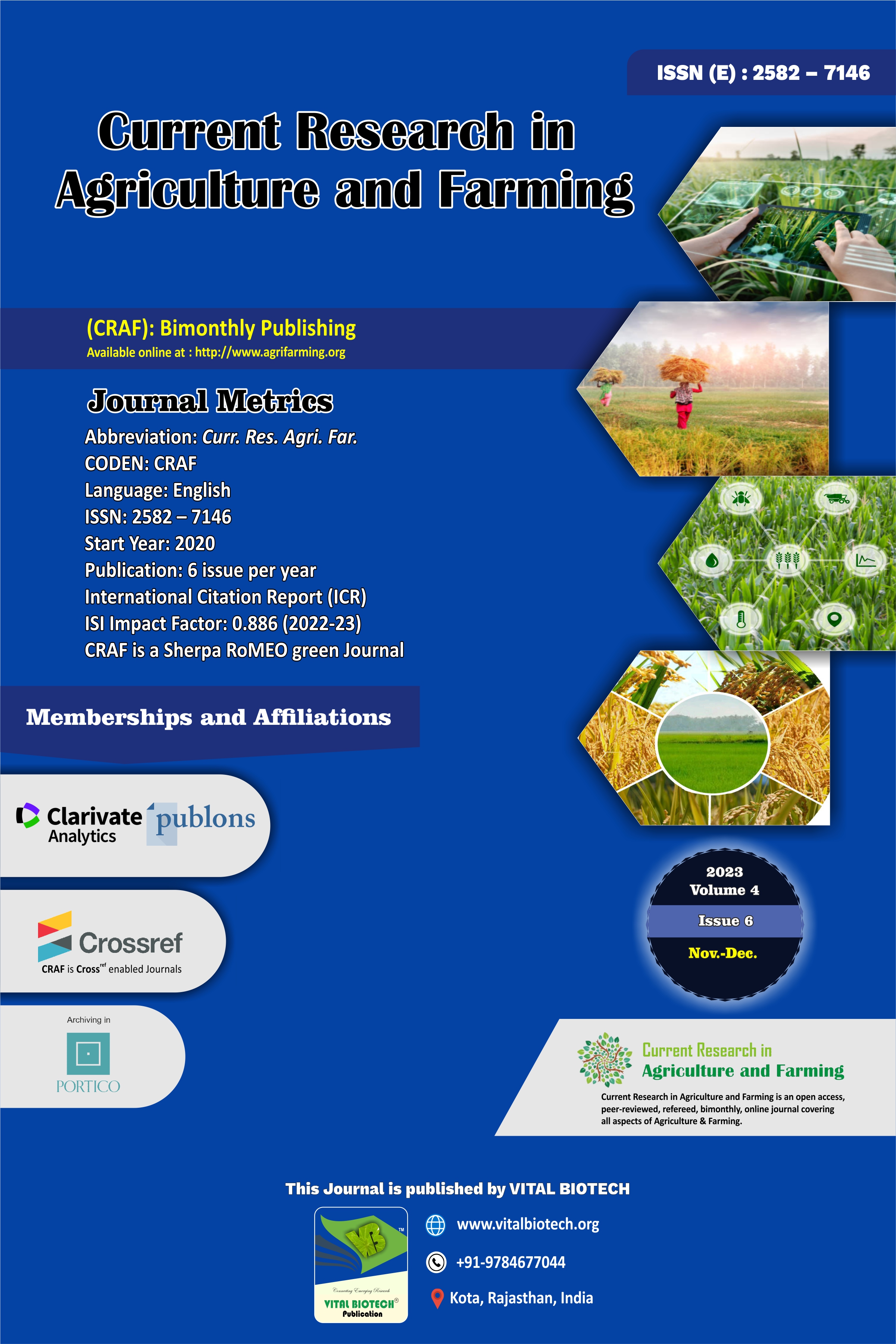

Current Research in Agriculture and Farming (CRAF)
Year : 2023, Volume : 4, Issue : 6
First page : (38) Last page : (44)
Article doi: : http://dx.doi.org/10.18782/2582-7146.220
Hassan Zubair1*, Muhammad Abu Bakar Ghalib2, Muhammad Asif3, Najam Saher4, Zain Abdullah5, Muhammad Abbas6, Muhammad Affan Akram7, Muhammad Bilal Farooq8, Nimra Tahira9, Habib Ur Rehman10
1Department of Agronomy, University of Sargodha, Sargodha 40100, Pakistan
2Department of Plant Breeding and Genetics,
University of Agriculture, Faisalabad (Burewala Campus), Pakistan
3Department of Plant Breeding and Genetics, University of Sargodha, Sargodha 40100, Pakistan
4Zoology, Wildlife and Fisheries, University of Agriculture, Faisalabad
5Department of Soil and Environmental Science, University of Sargodha, Sargodha 40100, Pakistan
6Department of Agriculture and Food Technology, Karakoram International University, Gilgit 15100, Pakistan
7Department of Plant Breeding and Genetics, University of Agriculture, Faisalabad 38040, Pakistan
8,9Institute of Soil and Environmental Science, 10Department of Agriculture,
University of Agriculture, Faisalabad 38040, Pakistan
*Corresponding Author E-mail: hassanzubair477@gmail.com
Received: 11.08.2023 | Revised: 25.10.2023 | Accepted: 12.11.2023
ABSTRACT
One of the main plant protein superfamilies is comprised of the WRKY transcription factor (TF). Plant stress responses are linked to transcriptional reprogramming, which is regulated in part by the WRKY TF gene family. Alterations in the ways that WRKY genes express themselves or alter how they function; take part in the development of several signaling pathways and regulatory networks. The development of gametes, seed germination, post-germination growth, stem elongation, root hair growth, leaf senescence, flowering period, and plant height are all influenced by WRKY proteins. Furthermore, they are important in a variety of environmental signals, such as those related to biotic stressors, temperature, salinity, drought, and cold. This review will refine reader knowledge about the role of the WRKY transcription factor that switches to tolerate the drought, temperature, and salinity stress in plants.
Keywords: Transcriptomics analysis, metabolomic regulations, overexpression, stress signaling, tolerance
Full Text : PDF; Journal doi : http://dx.doi.org/10.18782
Cite this article: Zubair, H., Ghalib, M.A.B., Asif, M., Saher, N., Abdullah, Z., Abbas, M., Akram, M.A., Farooq, M.B., Tahira, N., Rehman, H. (2023). Role of WRKY Transcription Factor to Molecular Switches to Tolerate the Drought, Temperature and Salinity Stress in Plants, Curr. Rese. Agri. Far. 4(6), 38-44. doi: http://dx.doi.org/10.18782/2582-7146.220

